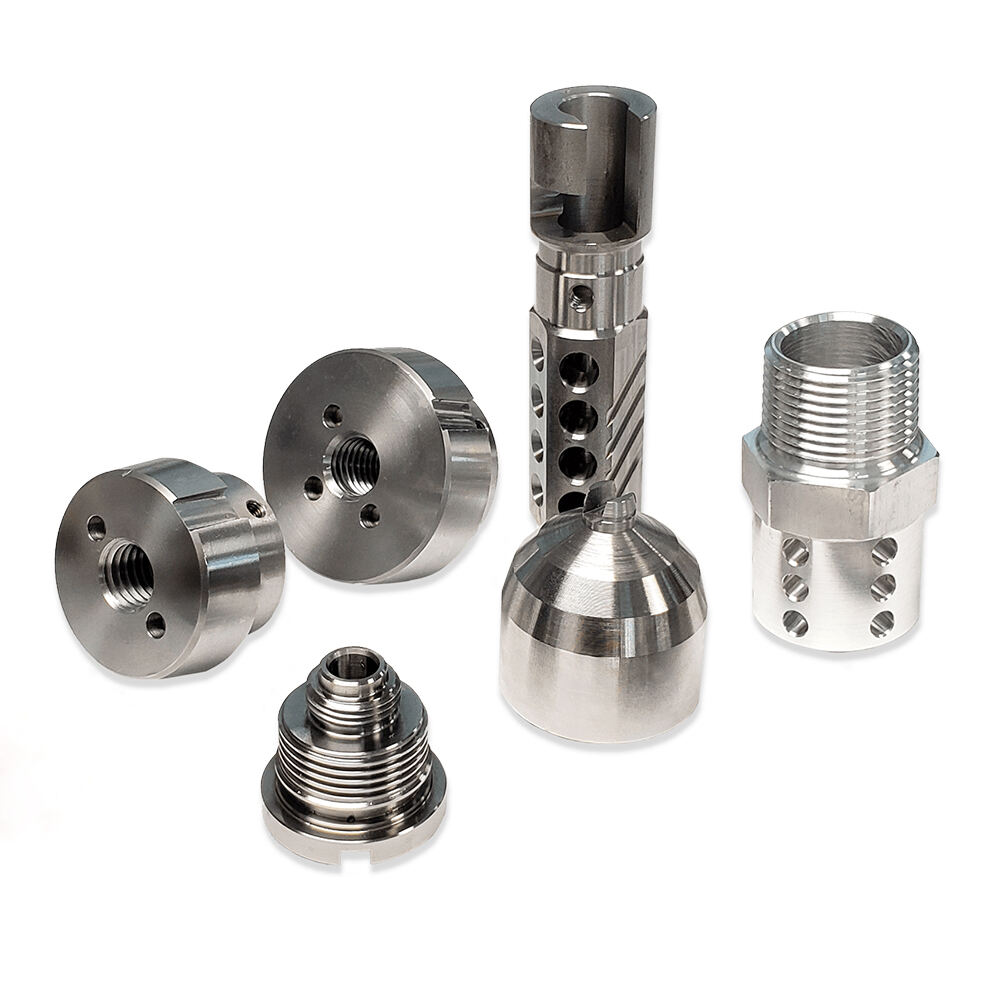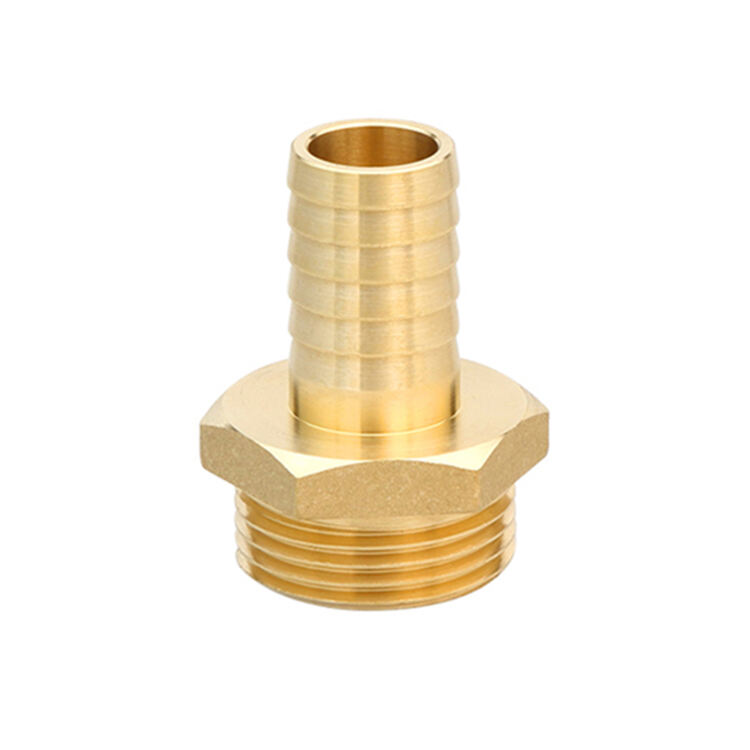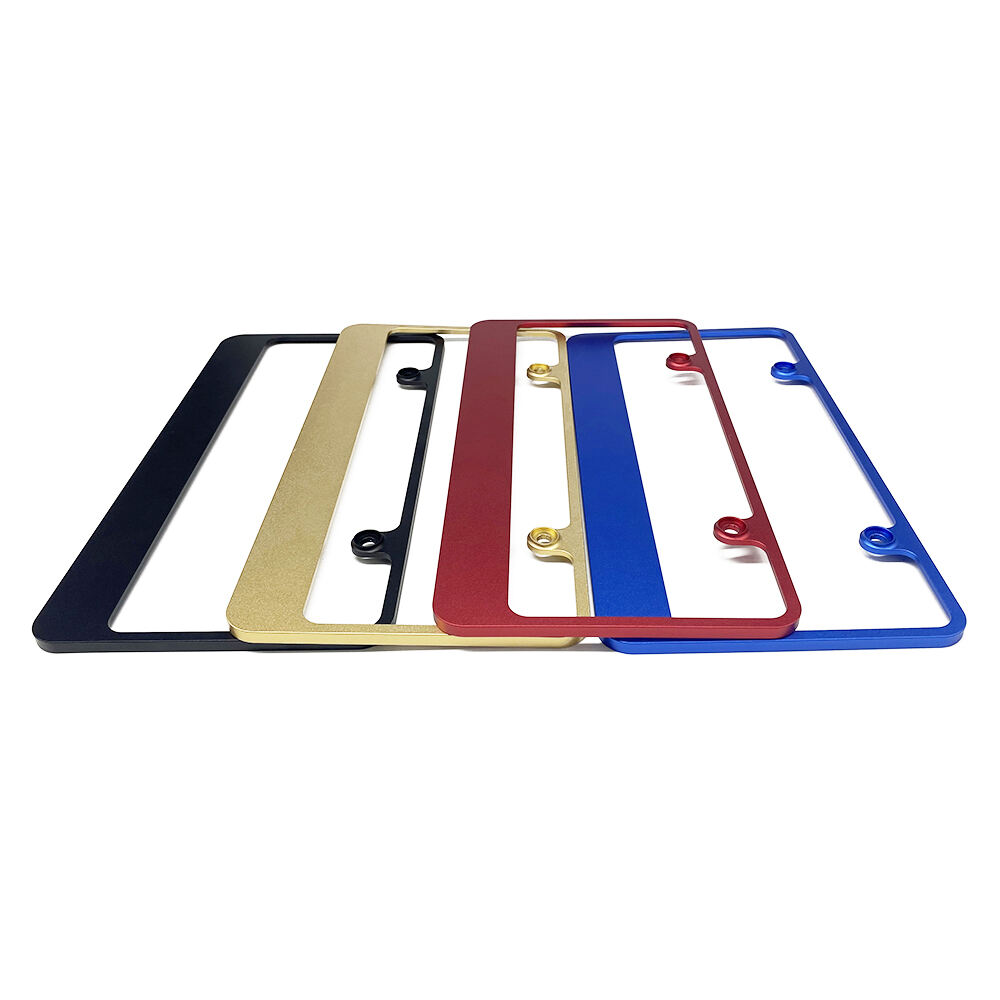Jan 21,2025
0
CNC machining, or Computer Numerical Control machining, is a cutting-edge manufacturing process that uses computer-controlled tools to automate the production of precision parts. By enabling high levels of accuracy and efficiency, CNC machining has revolutionized the manufacturing industry. The process systematically removes material from a workpiece, guided by computer systems, to create detailed and refined components.
The core components of CNC machining systems are essential for their operation. They include the computer and software that control the process, input tools such as Computer-Aided Design (CAD), and the machine tools like lathes and mills used for cutting. The machine control unit (MCU) acts as the brain of the CNC machine, interpreting design data and dictating the precise movements necessary to craft complex parts.
CNC machining functions through the transformation of design files into numerical commands. These commands guide the machine in creating the desired part by moving the machine's tools along specified paths. This automated transformation of digital designs into tangible Products not only ensures precision but also facilitates the rapid production of intricate designs with minimal manual intervention. As industries strive for higher efficiency and innovation, CNC machining remains a pivotal technology in modern manufacturing.
Precision is a critical factor in manufacturing, influencing both the functionality and safety of products. In sectors such as aerospace and medical devices, even the slightest deviation can lead to catastrophic failures or severe malfunctions. Precision ensures that components fit together seamlessly, which is paramount for complex assemblies and systems that demand high reliability and stability. For instance, a tight tolerance in machinery ensures smooth operation and avoids undue stress on parts, which can prolong the lifespan of equipment.
Moreover, precision directly affects product quality by enabling tighter tolerances, which lead to better-fitting parts and minimized wastage. By adhering to stringent specifications, manufacturers can achieve higher yield rates and reduce material costs. Advanced CNC machining systems can produce parts with remarkable precision, often with tolerances as small as ±0.025 mm. This level of accuracy minimizes errors in production and supports quality assurance measures, enabling manufacturers to maintain consistency across large volumes of production while also offering improved performance and longevity of the final products.
CNC machines are a diverse group of tools, each with unique capabilities tailored to different industrial tasks. CNC Milling machines are widely used in automotive and aerospace sectors for their precision and versatility. They operate by rotating a cutting tool to systematically remove material from a workpiece, making them ideal for creating intricate parts in these industries.
CNC lathes are another essential type, known for producing symmetrical parts. They function by rotating the workpiece while moving a stationary cutting tool along multiple axes, which is particularly useful in manufacturing cylindrical components like shafts and bearings.
CNC routers are primarily used for artistic and sign-making applications. These machines carve designs into wood, plastic, and softer metals, offering flexibility in handling various materials. Their ability to create detailed decorations makes them valuable tools in crafting unique signage and intricate wooden designs.
The advancement of 5-axis CNC machines marks a significant leap in machining technology. These machines enhance the ability to machine complex geometries by employing five axes of motion, allowing for the simultaneous movement of both the tool and the workpiece. This capability reduces setup times and increases precision, making these machines ideal for industries requiring detailed work, such as aerospace and medical device manufacturing. Unlike traditional methods, 5-axis machining offers reduced material wastage and improved tool accessibility, leading to superior manufacturing efficiency.
The precision CNC automatic lathe components play a crucial role in enhancing industrial machinery performance and reliability. These components are meticulously engineered to meet high standards of accuracy and durability, making them indispensable in improving the efficiency of industriaI systems. Precision CNC components can seamlessly integrate into complex machinery, ensuring smooth operation and reduced chances of mechanical failures. They are employed across various sectors, making them essential in manufacturing industries requiring tight tolerances and long-lasting performance.

Custom CNC lathe parts offer significant benefits by providing tailored solutions for specific industrial needs. These bespoke components are designed to meet precise specifications, ensuring they fit perfectly into intricate assembly systems. The ability to customize each part helps reduce downtime and enhances efficiency in manufacturing processes. Such adaptability makes custom CNC lathe parts ideal for applications ranging from aerospace and automotive sectors to medical device manufacturing, where exact specifications are paramount.

Custom high precision CNC machining services offer several advantages, notably increased production efficiency and the ability to handle complex designs. This service utilizes advanced CNC technology to deliver parts with exceptional accuracy and finish. The precision in dimensions and surface treatments ensures that parts meet stringent industrial standards, resulting in reduced waste and increased operational reliability. These custom machining services cater to a wide range of sectors, including aerospace, automotive, and medical industries, linking specific design requirements with high-performance outcomes.

Understanding CNC machining processes is crucial for comprehending their applications across industries. CNC drilling involves using a computerized drill bit to create precise holes in a workpiece. The process is highly automated, enhancing accuracy and repeatability, crucial for industries such as automotive and aerospace, where precise cut-outs are essential. It's particularly effective in producing holes for bolts, screws, and alignment features, with capabilities extending to performing operations like reaming and tapping.
CNC Turning is another fundamental machining process, mainly used for shaping cylindrical parts. It involves a rotating workpiece and a stationary cutting tool to precisely remove material. This process is highly efficient and results in smooth finishes and consistent dimensions, making it ideal for components like shafts and bushings. The versatility of CNC turning machines, which can operate on vertical or horizontal axes, enables the manufacture of complex cylindrical geometries with high precision.
CNC milling is perhaps the most versatile CNC operation. It uses rotary cutters to subtract material from a workpiece, allowing for the production of complex, non-cylindrical parts. Milling machines operate in multiple axes, including 3, 4, and 5-axis configurations, enabling the creation of intricate shapes and designs. This process is fundamental in industries ranging from aerospace to consumer products, where it is employed to create parts with elaborate details and specifications. Its adaptability makes it suitable for both prototyping and production-scale manufacturing.
Together, these CNC machining processes offer a comprehensive toolkit for manufacturing a wide range of specialized components across diverse industries.
CNC machining offers significant advantages in terms of precision and consistency. Businesses utilizing CNC technology often witness enhanced product accuracy and reduced variability. A key benefit, highlighted in various case studies, is its capability to consistently produce parts with tolerances as fine as 0.001 inches. This precision ensures that each component meets exact specifications, a critical factor for industries like aerospace and medical devices, where accuracy is paramount.
Another advantage of CNC machining is its versatility in handling a wide range of materials. CNC machines efficiently process metals, plastics, and even wood, adapting to different material properties with ease. This adaptability allows manufacturers to configure CNC processes to suit specific project requirements, thereby expanding the scope of their applications—from robust metal components to finely detailed plastic parts.
Efficiency and speed are additional benefits of CNC machining over traditional methods. CNC systems can reduce production times by as much as 50% compared to manual machining, thanks to their automated nature and continuous operation capabilities. This is further supported by statistics showing CNC machines' ability to operate 24/7 with minimal supervision, massively boosting throughput and facilitating rapid prototyping.
CNC machining, though effective, has its limitations. The high upfront cost of acquiring CNC equipment is significant, and additional expenses arise from the need for skilled operators who can manage both programming and machine setup. This sophisticated machinery requires training and expertise, which can be a barrier for many companies, particularly smaller businesses. Initial costs can fluctuate widely, with some CNC machines priced as high as $1 million depending on their complexity and capabilities.
Another challenge lies in maintaining precision, especially with complex designs. Several factors can affect this, such as software limitations that may restrict advanced design capabilities or the wear and tear of tooling. The material properties themselves can also pose challenges; some materials are difficult to machine without specialized tools. As CNC machines work with high precision, even small deviations in design specifications can lead to parts that do not meet quality standards. Ensuring precision requires regular maintenance and calibration of the machinery, as well as high resilience in tooling to withstand prolonged use without compromising quality.